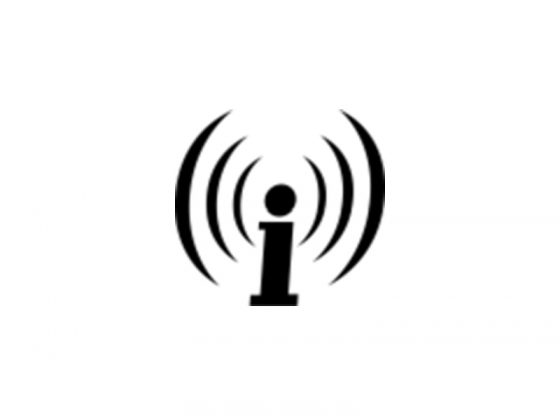And what would that actually look like? Let’s be honest about what the #Fediverse is, despite all the code and standards talk, the heart of the Fediverse is anarchism – not in the chaos sense, but in the older meaning:
The letter A for anarkhia (‘without ruler’), circled by an O that stands for order or organization.We have plenty of the A with decentralization, voluntary cooperation and resistance to imposed authority. But where’s the O? Of clear coordination, transparent process and federated trust and mediation?
Right now, we’re herding cats – each server, dev group, and community running off on their own, building tools and protocols, often without clear ways to connect, share governance, or defend against capture. This worked when we were small, it will not work now the big boys have arrived.
Warning from experience: The #EU outreach failure, we had a direct taste of this during the 2023–24 EU outreach process. It worked, but was quickly transitioned to the infrastructure of the #Fediverse without its soul. This isn’t theoretical, it is what happened to #FOSS transitioning to #opensource in the 2010s. This is what happens if we keep doing nothing? If we don’t act:
The foundation model is imposed — not built.
The fig leaf of “community governance” will be ignored.
A self-selecting oligarchy will form — friendly faces, perhaps, but still an eliteist power cleqe.
The Fediverse will be co-opted — just like we watched Google and Microsoft do to open source over the last 20 years.Yes, #ActivityPub is “open” but openness alone doesn’t stop capture. Ask the #FSF, or look at meany #NGO paths in tech.
What would “native” governance look like? Built from our values, not imported from the institutions we’re resisting.
- Soft Structure – Not no structure. The #OGB (Open Governance Body) project is one possible model: https://unite.openworlds.info/Open-Media-Network/openwebgovernancebody It’s based on the #4opens and rooted in the real history of grassroots organising, not rigid control, but visible, participatory trust-based structure.
- Real federation of trust -Imagine something like “trust instances”, each instance or org can choose to endorse certain process and values (e.g., 4opens, PGA hallmarks), creating a visible network of aligned projects. Not a central body, but a web of consent, the #OMN is an example of this.
- Self-accountability + Diversity of tactics. Everyone agrees to transparency and openness. Everyone chooses their own path. Nobody is forced, but the community can see what you’re doing. This is essential for resisting #NGO co-option without creating more gatekeeping elitists
Are Platform Co-ops the Answer? Maybe, but… proceed with caution. Many tech co-op projects I’ve seen:
Become ossified in bureaucratic process
Elevate process geeks over users and communities
Reproduce #NGO behaviours under a different nameWe’ve seen this in the #techcoop movement, especially in the UK, where platform co-ops often start with radical aims and drift into “doing B2B consulting for ethical startups.” Fine, but not the revolution we worked for. The stakes are real, we’re not just talking about tech here, we’re talking about:
Climate collapse
Social fragmentation
The rise of digital authoritarianismWe need an #openweb that reflects our values, #fediverse governance that protects the commons, and to move from just the A to the full A inside the O – the anarchist circle of voluntary structure. Let’s not wait for another hijacking, we need to build something native to the Fediverse before it’s too late.

The signal-to-noise problem of our #geekproblem in the #fediverse and the wider #openweb. Let’s be clear: platforms like #Mastodon and the #Fediverse are native openweb projects. They embody the values of the #4opens — open data, open source, open process, and open standards.
The value here is not in hardening and securing these systems to the teeth. People who are pushing for hyper-“security” are missing the point entirely. This isn’t about “common sense” dev practice. It’s about use-case. Public media content should be open — and that’s what the Fediverse is good at. It’s media. It’s conversation. It’s public dialogue. That’s what #ActivityPub is designed for. For private communication, we already have mature and well-tested encrypted tools: #Matrix, #Briar, #Signal, etc. Use those for whistleblowing, direct action, or anything sensitive.
Trying to bolt high-security models onto public communication tools breaks the value of the #Fediverse – its simplicity, accessibility, and low barrier to entry. Right now, the #Fediverse is a functional part of the #OMN – it’s a mesh of many small pieces, loosely joined, low-barrier, easy to host, easy to adapt, easy to grow. This is a fragile ecosystem, not a fortress. By pushing unnecessary “security” requirements, this #geekproblem are:
Scaring away potential users and admins
Raising technical barriers
Spreading #FUD
And most dangerously — undermining real-world activists who rely on open visibility and reach, not secrecy.The #geekproblem, pushing complexity, abstraction, and fear over usability and trust, has been blocking the alt-tech world for over 20 years, it’s happening again. Let’s not let them smother this moment, the open web works when it’s messy, simple, and human.
You can help here https://opencollective.com/open-media-network

